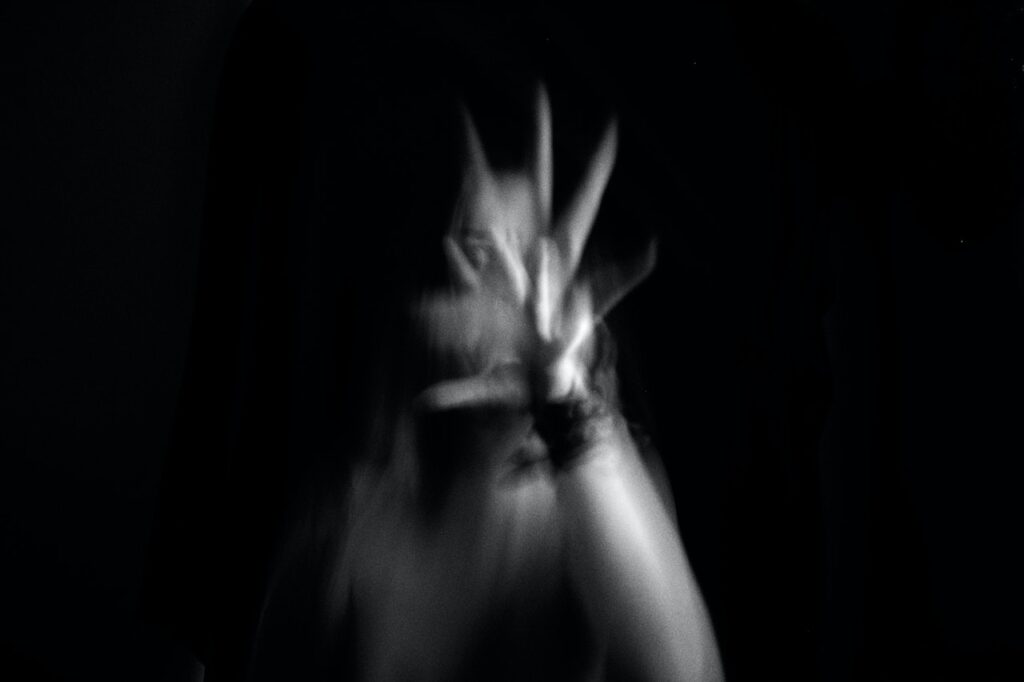
“Woobie” is a funny word I recently discovered when researching for this post. Funnily enough, the concept of “woobie” is nothing new. As a Gen-Xer, we called these people “emo” back in my day *waves cane.*
This character is also referred to as the “Piti Anti-Villain.” They don’t want to be evil, but life has been so cruel they have no choice. *cues super sad music*
Or do they?
We can see how the “Woobie” anti-villain can easily create some amazing dramatic tension.
Emo protagonists and antagonists have been around for a long time. If I recall correctly, the “tortured character” rose to popularity during the early 19th century.
***Think “Darcy” for protagonist and “Frankenstein” for antagonist.
The emo, wounded souls are bound by their own perpetual torment and just waiting to be saved from themselves. Or are they?
Last time, we discussed what an anti-villain is, and why they can make for some of the most fascinating characters in fiction. First and foremost, anti-villains are fabulous to create…
Stories of Substance
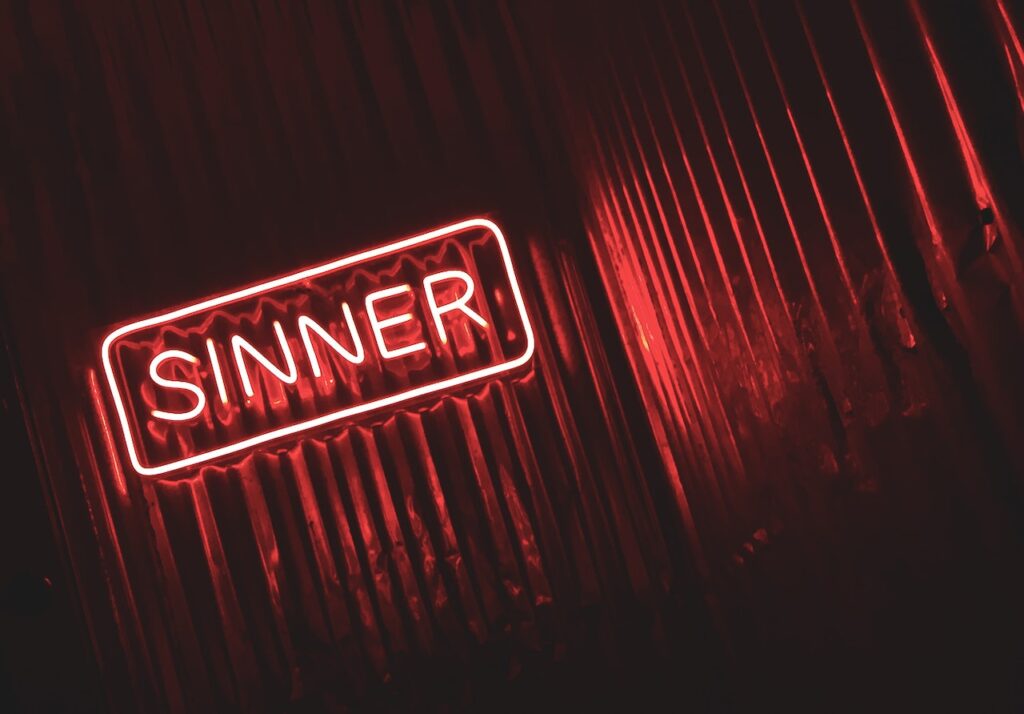
When I wrote The Devil’s Dance (which is a romantic mystery-suspense), I intended for it to be a fun book a potential reader might inhale in 1-3 sittings, such as on a plane flight or over a weekend by the pool.
My GOAL was to tell a good story and to entertain, not hold a mirror up to humanity’s/society’s flaws. Which is FINE. A quick glance at the reviews and mission accomplished!
This said, even if we are simply wanting to spin a great yarn, audiences want stories that resonate. Most of us cannot wrap our heads around those who commit evil acts for the sake of—MUAH HA HA HA—being “evil.” We want a reason.
A simple way to add some layers to your story is to view the core problem through the eyes of the core antagonist. Remember, antagonists (and villains) are usually the heroes in their own stories.
What is their POV, and can we make their case a little sympathetic? Can we at least create a situation where we rattle the reader enough to dig down to THINK about what they actually believe?
Is it possible to have…
Sympathy for the “Woobie” Devil
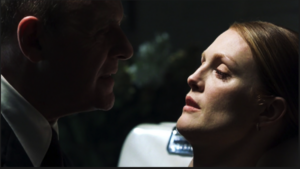
When I introduced the anti-villain, I gave Dr. Hannibal Lecter as an example. There are many reasons why Hannibal is one of the most fascinating villains in modern fiction. The notion Hannibal is redeemable is arguably one of the top reasons audiences like him.
Deep down, we know love has incredible power. I feel that—rightly or wrongly—it’s why we cannot seem to get enough of the Beauty and the Beast trope. We yearn to believe that with enough time, patience, love, understanding, we can “save” anyone.
While this can be a noble human trait, it can be a deeply foolish/flawed one as well.
Since I have slept since I read Harris’s books I will defer to the cinematic iterations. Part of how Hannibal keeps Special Agent Clarice Starling AND the audience off-balance is his lawful evil sense of right and wrong (and the romantic/sexual undertones that crackle throughout).
It is hard not to cheer for Hannibal when he’s taking out way-badder-bad guys. We find ourselves unwittingly rooting for him when he jeopardizes his freedom to return to the States and defend Clarice. Heck, the man cuts off his OWN HAND rather than hurt Clarice to escape.
HIS HAND! Not HER HAND!
Talk about mixed messages.
I Love You…to DEATH
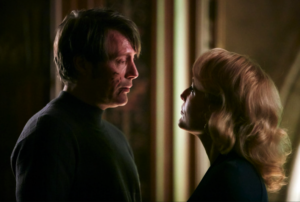
The Netflix series Hannibal further expounds on this deeply toxic “love” using Dr. Lecter and his therapist Dr. Bedelia Du Maurier (a character created for the series and not found in the books).
In Season One, the storyline intimates Dr. Du Maurier retired suddenly after a criminally insane patient attacked her (a patient Hannibal referred).
She barely survives, but the attacker does not. One guess on his fate?
Hannibal protects his own.
Even Dr. Bedelia Du Maurier struggles to accept/admit what Hannibal really is—that he is an apex predator in a “human suit”—until MUCH later in their relationship. Why?
Sympathy for the devil. We simply do NOT want to give up on people. Again, noble quality, but one that can easily be our undoing.
Did Hannibal protect Du Maurier out of genuine care for her? OR did he see her as a useful tool to have in HIS toolbox? Remember, malignant narcissists do not inherently value other people; they value what others can do for/offer them.
Refer to: Weakness: Blood in the Water & Narcissist Sharks
Note I said that Hannibal referred the violent patient to his colleague. Was this an innocent referral that went terribly wrong? Or, did Hannibal a) know good and well that guy was a ticking bomb, and b) it was only a matter of time before he attacked/tried to kill, so c) Hannibal could be the right “hero” in the right place and time?
***Though I cannot be 100% certain, I’m fairly sure it’s really hard to turn on a person who’s saved you from a brutal death.
If, however, Hannibal is playing 3-D chess, we begin questioning his motive. Is there some glimmer of humanity within him waiting to be saved, or is it all a deepfake? When that question is never answered to our satisfaction, hope springs eternal.
“Woobie” Joker
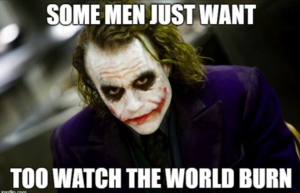
My all-time favorite Joker is the Heath Ledger iteration in the 2008 movie, The Dark Knight.
In The Dark Knight, “woobie” Joker insinuates that his life, in some way, has been horrifically unjust (e.g. the grotesque scars across his face/mouth). There is a powerful scene where, for a moment, Joker ceases to be this unknowable madman and is a helpless, damaged child.
Or is he?
Can’t Bruce Wayne also relate to tragedy and gross injustice? HELLOOO??? How did he become Batman?
This is where we can start seeing the difference between the anti-hero and the anti-villain. One is redeemable, whereas the other is not.
Both Batman and Joker have tragic backstories, so where did they part ways? They parted at how those experiences ultimately shaped their worldview and goals.
Joker believes the world (Gotham) is broken, worthless and beyond redemption. Since the corruption is systemic, all that remains is to burn it all down and start over. And, if we’re gonna burn it all down, why not roast marshmallows on the flames? YOLO, right?
One doesn’t need to watch much of the news to at least empathize a little with Joker’s POV.
Joker believes there is nothing good about his fellow humans. Goodness is a facade. With the right lever, everyone can be moved off the bedrock of what they claim to believe.
***Harvey Dent proves Joker right. Good thing Dent is not the HERO of this movie.
What About “Woobie” Batman?
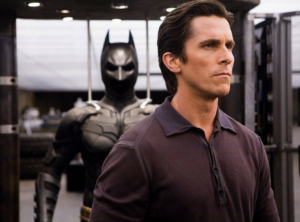
Batman (Bruce Wayne), also believes Gotham is corrupt and awful and maybe even irredeemable…but chooses to fight anyway. Unlike Joker, Batman refuses to give up hope and has faith in the unexpected goodness of his fellow human beings.
We see this dichotomy play out brilliantly in the story.
In the final act of The Dark Knight, Joker reveals two evacuation ferries—one carrying innocent civilians and the other hardened prisoners—are rigged to explode at midnight unless one group sacrifices the other. To Joker’s great vexation, the passengers prove out what Batman believes about humanity when they steadfastly refuse to kill each other even to save themselves.
Why I particularly like The Dark Knight is that Batman technically “lost” if we look at the story from a strict genre fiction expectation. In strict expression, the MC MUST take on the core antagonist in Act Three and prevail.
Yet, Batman didn’t do this as neatly as in other movies, all mano a mano. In a sense, he has victory by proxy. When prisoners and everyday people prove there is something about humans worth saving, it demolishes Joker’s entire argument.
This movie is more about beliefs than some showdown with a bunch of CGI and explosions at the end.
Batman even goes so far as to take the blame for the crime his friend, the corrupt(ed) D.A. Harvey Dent committed—AND give him the credit for saving the city—in order to preserve his friend’s memory as well as the hope of everyday citizens.
Batman’s (plot) loss is ultimately a win because he and the hostages disproved Joker’s raison d’etre that all humans are ultimately selfish and irredeemable.
“Woobie” Doobie Do….
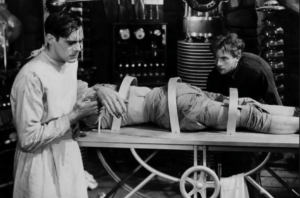
“Woobie” anti-villains are complex and relatable, which is why they’re a fan favorite. So was does the “woobie” do? The woobie anti-villain brings up so many age-old philosophical arguments we humans never can fully answer.
Are we a product of nature? Nurture? Both? Which is more important? Do we really have free will?
If we take two characters with similarly tragic backgrounds, why don’t they consistently choose the same paths? Not ALL people with traumatic childhoods become, say, serial killers and not all serial killers came from traumatic backgrounds.
For instance, with serial killers, one can argue that nurture drives behavior (Ed Kemper’s abusive mother).
What about nature?
There is a LOT of evidence to support that Jeffrey Dahmer suffered a TBI (traumatic brain injury) in early childhood when he had emergency surgery to repair a double hernia. Not just a TBI, but a TBI in the prefrontal cortex, the area of the brain responsible for emotions, empathy, and self-governance.
After the surgery, sources claim Dahmer was never the same, never “right” (we know this from reports from teachers, relatives, and those in his life). In light of knowing that information, do we blame nurture or nature? In his case, a traumatic childhood with a damaged brain.
Did Dahmer have the capacity to know right from wrong?
What about Frankenstein’s monster? The monster didn’t ASK for Dr. Frankenstein to play God. He never asked to be created and had zero choice in that decision.
Dr. Frankenstein, out of hubris, played God then abandoned his creation to a world where that creation would be forever feared, reviled and hunted. Was it orally acceptable for Dr. Frankenstein to play God while dodging his responsibilities, or should he “pay”?
Ultimately, who is the REAL villain?
Thoughts on “woobie” anti-villains?
Other than “woobie” a very strange word? From Frankenstein’s monster to Sweeny Todd to Hannibal Lecter, it seems there’s no end to the fascinating twists and turns these characters deliver. Who are some of your favorites? Now that we are unpacking what an anti-villain is, does it clarify why certain tropes endure the test of time?
I LOVE COMMENTS!
To prove it and show my love, for the month of SEPTEMBER, everyone who leaves a comment, I will put your name in a hat (scroll down for August’s Winner).
I actually have landed agents for people who’ve won this contest. Agents like me because I make their lives easier.
***It’s been a short holiday week and I will post the winners next blog. Apologies.
If you comment and link back to my blog on your blog, you get your name in the hat twice.
What do you win?
The unvarnished truth from yours truly (and maybe even time with an agent).
I will pick a winner once a month and it will be a critique of the first 20 pages of your novel, or your query letter, or your synopsis (5 pages or less). People with superlative writing, I (with your permission) have been known to pass you onto an agent.
Anyway, I look forward to reading your comments and your writing!
AUGUST WINNER! Sydney Baily. CONGRATULATIONS! Thanks for the blog love and the support! Please send your 5,000 Word doc to kristen at author kristen lamb d0t c0m. Double-spaced, 12-point font, Times New Roman, one-inch margins (helps my eyes).








8 comments
Skip to comment form
Fantastic post!!!
Another prime example of the anti-villain is Oswald Cobblepot, aka the Penguin on GOTHAM, who pretty much took over the show for a while despite doing some truly awful things (and taking the blame for some of the crap James Gordon, not yet Commissioner, felt forced to do. That was one weird relationship). You hear yourself asking, “Why has no one killed him yet? *How* has nobody killed him yet?”. And the arc where he’s totally rehabilitated, we think, but the Evil Stepsisters constantly torment him? Let’s be real, we were looking forward to him snapping and letting them have it. Even Poison Ivy just kind of sat back and admired him.
I think the “sympathy for the devil” is an important – even necessary – human emotion that enables us to, even as we’re judging or exacting justice, understand how this antagonist slipped over the line to the dark side and why they do the terrible things they do. We’re able then to see the shades of gray in situations and exhibit mercy and forgiveness even while meting out justice.
Take Dexter, for instance. I love Dexter even as I know he’s a hideous human being in so many ways. The books play him much darker and ill-connected with the rest of humanity, and it’s really a toss-up as to whether he was born sociopathic or made that way as a result of his childhood trauma. You never are really told one way or the other in either the books or the TV series – the series bends more toward made than born, but even so, there’s always a thread of doubt woven in.
But he’s killing serial killers – predators of the worst sort, so he’s doing us a huge favor, right? Or is he really just pulling us toward the dark side by choosing victims we will automatically think deserve to die and will cause us to be in sympathy with him, cheer him on, maybe even condone and exonerate his actions (regardless of Harry’s code of who to kill, Dex ultimately chooses who he’s taking down). Do we become less moral and righteous as we exhibit that sympathy? Kind of a disturbing question, no?
Author
BRILLIANTLY STATED! *stands and claps* And YES! That is why these characters are not only fascinating, but necessary.
I LOVE your articles like this. My wife has been pushing me for over a year to write not just an anti-hero, but one that’s irredeemable, one that would be a villain in almost any other story.
It’s a challenge, but has been so intensely fulfilling that I feel like it’s actually caused me to grow as a person a bit.
PS – Link for two hat appearances is here: https://www.juddexley.com/writing-3/the-number-nine/i-used-to-be-aspiring-but-id-limited-myself/
I felt a great deal of sympathy for Frankenstein’s monster. He was the real victim in the story, and in my opinion, it was Dr Frankenstein who was the true monster.
One of my favorite anti-villains is Red Reddington from The Blacklist (TV series).
Interesting and entertaining as usual, thanks.